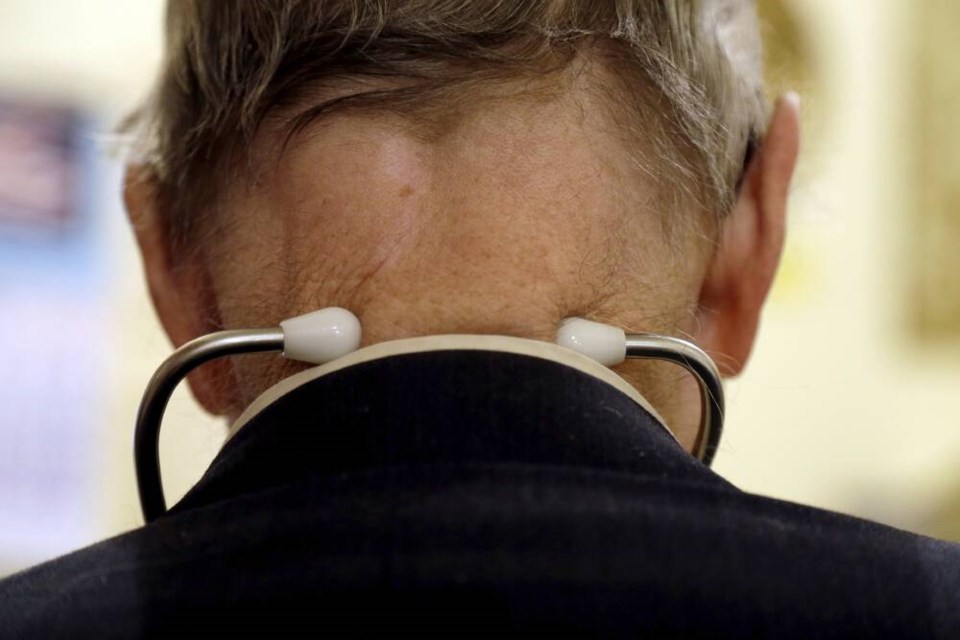The troubles besetting family medicine in our province continue to grow. Some can be traced to the COVID outbreak, and the pressures it imposed. Some are due to the ever-growing burden of red tape and paper shuffling that doctors must contend with.
But others originate within the profession itself. Two in particular stand out.
First, we are seeing an emerging movement among family practitioners to “de-enrol” from the Medical Services Plan.
Doctors who go this route leave the public system entirely, and bill their patients directly. MSP will not reimburse those patients.
While this trend is still in its infancy, there have been at least two instances recently where physicians in the capital region announced they had made this choice.
In one case, Dr. Perpetua Nkechi Nwosu at the Perpetual Health Centre on Shelbourne Street told patients she plans to de-enrol from MSP and bill patients $125 per month. Children 10 and under aren’t charged.
And Beta Therapeutics in Royal Oak has announced that starting Nov. 1, it will begin charging patients a “family medicine” fee of $110 a month per person.
In the past, physicians were reluctant to de-enrol, since why would a patient pay a service free under medicare?
But with the growing shortage of family doctors, this option is becoming more attractive.
In our view, physicians who de-enrol from the public plan are abasing their profession.
This is not a new model of family practice. Rather it is an abandonment of everything family medicine stands for.
Simply stated, it is an attempt to profit from the desperation of patients who can’t find a doctor. In effect, it is privatization by the back door.
Health Minister Adrian Dix has said he intends to introduce changes to the physician fee schedule later this year. He should take that opportunity to curtail the practice of de-enrolling from MSP.
The second concern is with family physicians who close their practice and join tele-health firms. They don’t de-enrol. MSP still pays the bills.
But they no longer maintain an ongoing relationship with their patients — the very heart and soul of family medicine.
The concern here is that tele-health companies do not offer most of their clients ongoing care, also called “longitudinal care.” Instead, patients phone in and talk with a doctor whom they might not know, and who might not know them or their history in depth.
While some of these companies operate clinics where patients can receive follow-up treatment, there are only a handful in place.
This form of care may work for simple matters like prescription renewal, but it is not a replacement for the kind of long-term relationship that family medicine is meant to offer.
The question is why this is permitted. The sa国际传媒 College of Physicians and Surgeons, the oversight body for medical professionals, has published a standard of care governing tele-health medicine.
According to the college: “In the context of [tele-health] care, access to in-person care must be provided to patients as required and longitudinal care must be provided as indicated and required by patients.”
So why is this standard not being enforced? In defence of its own policy, the college should discipline family physicians who do not offer all their patients who need it longitudinal care.
Regrettably, the college has so far refused to do so.
We understand the many burdens that have fallen on family doctors — some, it must be said, due to disdain for change within their own profession.
Nevertheless, what is at stake here is nothing less than the preservation of family medicine in its fullest sense.
It is up to the two authorities responsible for protecting our public health-care system, the minister of health and the college, to discharge this duty.
>>> To comment on this article, write a letter to the editor: [email protected]



